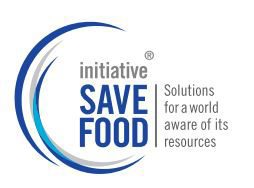2023 World Cold Chain Symposium, Focused on Sustainable Growth in Cold Chain Activities, Replay Now Available Online
Category : In The Media , Press Release , Uncategorized
Sponsors Thank Speakers and Audience for the Successful Live Event and Enthusiastic Interest in Watching the Impactful Symposium Online
Washington, DC – December 15, 2023 – The Global Food Cold Chain Council (GFCCC) and its partners the United Nations Environment Programme (UNEP) OzonAction and the Cool Coalition, and its sponsor Carrier, announced today that the replay of the 2023 World Cold Chain Symposium is now available online, and thank the speakers and live audience members once again for their participation at the Symposium, which occurred live in Nairobi, Kenya on the eve of the U.N. Montreal Protocol Meeting of the Parties on October 21st. The Symposium brought together leaders from government, industry, foundations and academia to discuss the means of reducing food loss and waste through sustainable expansion of the food cold chain.
The 2023 Symposium focused on the theme of “Sustainable Growth: Building Business Models for Cold Chain Development” and took advantage of the proximity to African nations, featuring several cold chain projects taking place in Africa to highlight the successes of these activities and the opportunities to further expand on a global scale. The program featured opening remarks from Tim White, President of Carrier Refrigeration, and keynote speeches from Hans Hoogeveen, Independent Chairperson of the Council of the U.N. Food and Agriculture Organization (FAO), Meg Seki, Executive Director of the U.N. Ozone Secretariat, and David Mutisya, Acting Director for Renewable Energy at the Ministry of Energy for Kenya. The full speaker list is available on the Symposium website linked above.
The Symposium featured discussions on the ability to reduce food loss and waste as part of the implementation of the Montreal Protocol process and emphasized its work to support data gathering, as well as the importance of building business models and finance mechanisms that would facilitate sustainable cold chain expansion. Three panel sessions focused on:
- Impacts and challenges of project implementation by local project representatives.
- Importance of supporting local entrepreneurs to develop sustainable cold chain systems through the development of best business models and practices by major project sponsors.
- Technology roundtable: Importance of technology innovation in the cold chain.
“The global community now better understands the need for, and the environmental and economic benefits of, expansion of a sustainable cold chain,” said Kevin Fay, Executive Director of the Global Food Cold Chain Council. “This event emphasizes that, while much work has already been done to support the expansion of the cold chain, the global community must continue to work together to comprehensively establish sustainable cold chain systems that are self-reliant, and that harbor growth and technological innovations after initial investments conclude.”
Hans Hoogeveen, Independent Chair of the FAO Council, said, “Governments are beginning to understand that they cannot fight the battle against food insecurity alone. The activities that result from the combination of government work, primarily performed through multilateral organizations, private sector capacity and technological innovations, and local community involvement will be the solution to address widespread hunger, and sustainable cold chain expansion is a key component. I applaud Kevin Fay and the Global Food Cold Chain Council for stepping up to lead in of the expansion cold chain sector, and appreciate the knowledge shared at the World Cold Chain Symposium.”
###
GFCCC is an independent not-for-profit industry organization that seeks to simultaneously reduce food waste, and related greenhouse gas emissions in the processing, transportation, storage, and retail display of cold food by expanding and improving access to energy efficient low-global warming potential technology.
UNEP OzonAction is an Implementing Agency of the Multilateral Fund of the Montreal Protocol on Substances that Deplete the Ozone Layer. OzonAction’s goal is to enable developing countries to meet and sustain their compliance obligations under the treaty.

